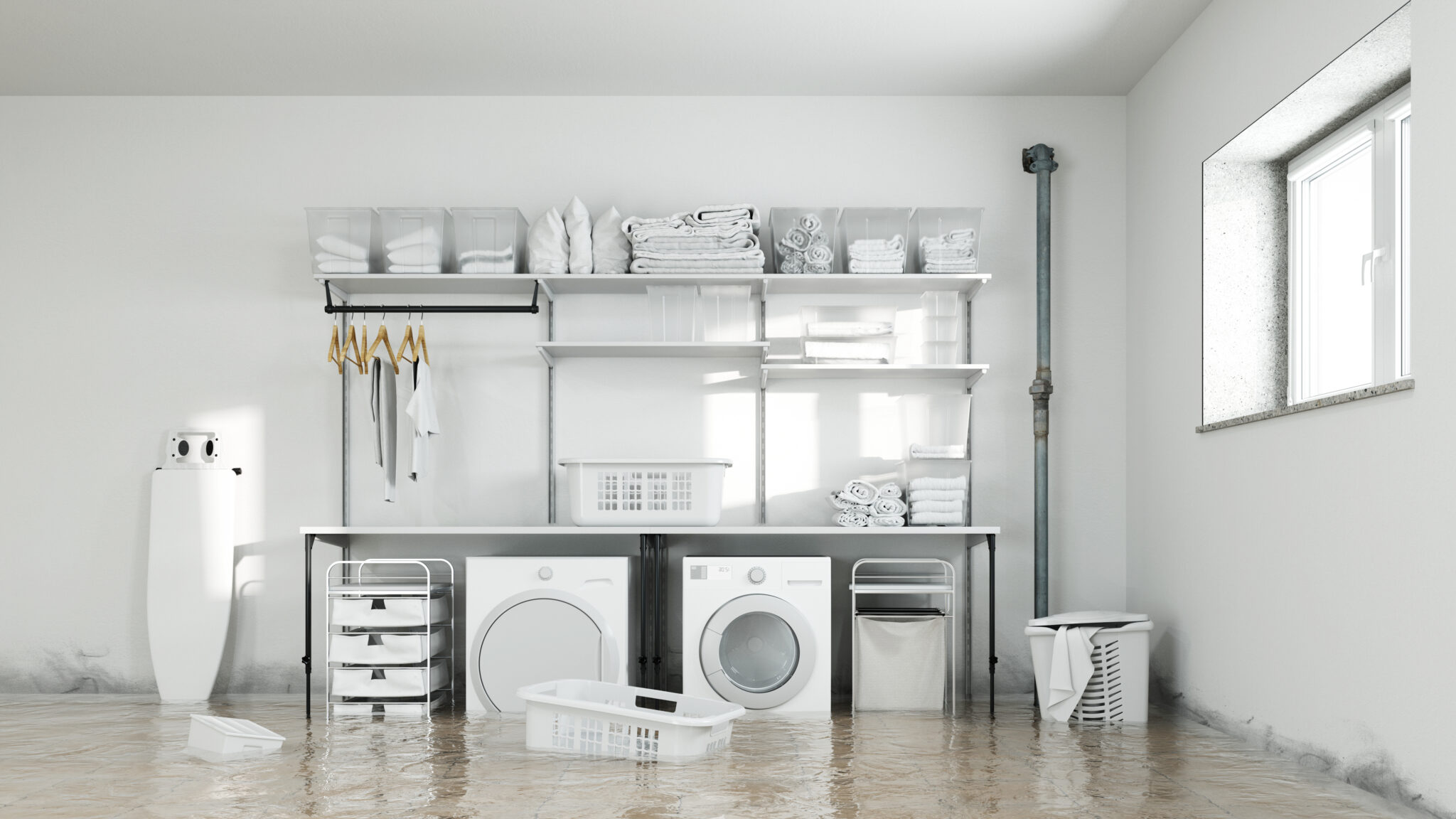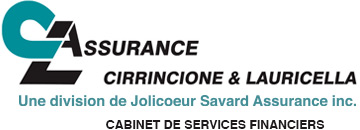Water damage: what coverage best meets your needs

Did you know that water damage is the main cause of home insurance claims in Quebec? However, a basic contract won’t cover all types of damages. Some require additional coverage (an endorsement). Let’s go over the details to learn more about the types of coverage that best meet your needs.
Two types of coverage: basic and optional
Some water damages are covered by a basic all-risk home insurance policy: accidental and occasional damages that pose a minimal risk of recurring. Other types of damage require additional coverage, such as those caused by:
- Ground or underground water infiltration (groundwater endorsement)
- Sewer backup (sewer backup endorsement)
- Flooding caused by an overflowing body of water (flooding or overflowing watercourse endorsement)
- Above-ground water infiltration (above-ground water endorsement)
- Water inlet break (water inlet break endorsement)
The following examples will help clarify.
What is normally covered by all-risk insurance
An overflowing water receptacle — You accidentally leave your bath running and the bathtub overflows.
A plumbing installation failure — Your dishwasher or washing machine hose breaks suddenly and accidentally, flooding the kitchen floor.
Water infiltration caused by a break in a water pipe — A pipe leading to your water heater breaks suddenly and accidentally, resulting in water infiltration inside your house.
What can be covered by adding an endorsement
Water infiltration caused by an overflowing body of water — In the spring, the water level in the lake near your house rises and the lake overflows, flooding your basement. If you live near a river, lake or other body of water, consult your insurance broker to make sure you are eligible for this additional coverage.
Water infiltration caused by rain — During a storm accompanied by heavy rains, water infiltrates through the windows, walls or roof, following or not a breakage caused by wind. This risk is covered only if you add the endorsement that covers above-ground water infiltration.
Sewer backup — The city pipes overflow and the wastewater floods your home. This risk is covered only if you add the sewer backup endorsement. Some insurers require the presence of a check valve or a similar device, such as an electronic sewage check valve (Aqua-Protec).
Water infiltration caused by melting snow — The snow has piled up beside your house and, during spring melt, the water seeps into the foundation. To be covered, you have to add an endorsement that covers water infiltration through the foundation, commonly referred to as the groundwater endorsement.
Ask your broker
In case of doubt, consult your home insurance broker to see whether you are covered for specific types of damage. When you renew your policy, it is also important to let your broker know about any changes, such as a new water heater, roof repairs or plumbing modifications. Your broker is there to help you stay dry, and support you if ever water gets in.
What’s the added value of dealing with a broker?

When you’re looking for insurance to protect your goods, you can deal directly with an insurer or choose a damage insurance broker. Although both are regulated by the Autorité des marchés financiers, they are somewhat different. Let’s see what a broker can offer you and why you might want to opt for one.
1. A broker is independent
A broker acts as an intermediary between several insurance companies and a customer, and generally works for a brokerage firm. Consequently, the broker has no employment relationship with the insurance companies to which it has access.
2. A broker negotiates on your behalf
A broker doesn’t sell insurance: it buys insurance for its customers. Its role is to negotiate on behalf of its customers in order to find the best options at the best price. As an intermediary, it is well positioned to negotiate.
3. A broker offers a wide range of products
A broker shops around various insurers. At CLA, for example, we deal with over 30 insurers and wholesalers. As a result, brokers have the flexibility to compare different coverage options and find the most suitable product, which allows you to make an informed decision knowing that the price offered is the best on the market. A broker also saves you from having to shop around several insurers to compare prices.
4. A broker supports you in the event of a loss
When you make a claim, the broker gathers the relevant information and sends it to your insurer. The insurer’s claims adjuster broker will then contact you to start the claims process.
At CLA, we have also put in place a management team dedicated to supporting customers in the event of a loss. Along with your broker, this team is available to assist with the compensation process, and is an independent ally that can support you in your dealings with the insurer.
5. A broker takes care of your renewal
When the time comes to renew your insurance policy, a broker can once again shop on your behalf if the price increase is too high or the coverage is no longer suitable. A broker saves you from having to get other submissions yourself and from providing multiple companies with the same information.
6. A broker keeps track of you over the years
The connection that you develop with your broker is very much like the relationships you build with other professionals over your lifetime, such as your financial advisor and accountant. When a change in your life affects your damage insurance needs (e.g., move, construction or renovation work, business start-up, change of vehicle, purchase of a recreational vehicle), you can discuss the matter with someone you know who is familiar with your situation.
A broker makes your life easier
In short, damage insurance brokers do everything in their power to make things easier. They simplify complex insurance concepts, shop for you, advise you on the best available options and negotiate on your behalf. With that type of support, it’s easy to make the best insurance decisions.
Should you insure your construction work or home renovations? Absolutely!

You have invested $60,000 to extend your home, including a new four-season porch and a brand new kitchen that you have been dreaming about forever. During the course of the work, a fire breaks out and destroys everything. Fortunately, you had the foresight to contact your CLA broker and adjust your coverage before the work began.
In order to be sure that your construction work or home renovations are covered in the event of a loss, contact your insurance broker before work begins to:
- Adjust the insured value or the rebuild cost. In the event of a loss, if the insurance amount specified in the policy does not reflect the value of the additions, you will have to incur the loss.
- Notify the insurer about the type of work that will be done as well as the start and end dates of the project. The insurer will add a rider specifying the renovation work and the coverage required.
What about builders risk insurance?
The contractor overseeing your construction work or home renovations also has a role to play in providing coverage for the project. In most cases, he has to purchase builder’s risk insurance, which covers the work being done against theft and material damage. The policy ends once the construction or renovation work is completed.
The contractor must purchase this type of insurance in particular when:
- building a new home
- demolishing part of a home to rebuild it
- extending a home (e.g. building an addition, a garage or a new floor)
Should you choose to manage the project yourself (without a contractor), you should purchase a separate policy which will provide specific coverage to this type of project.
It is important not to assume that the contractor has purchased builder’s risk insurance, and to verify that the coverage is sufficient. Otherwise, you may have to sue in the event of a loss.
Plan ahead
In short, as soon as you plan any major renovation or construction work, be sure to do the following:
- Contact your CLA broker who will advise you and contact your insurer in order to make the appropriate policy adjustments
- Check with your contractor to make sure that he has purchased builder’s risk insurance and ask for a copy of the insurance policy
The amounts involved in construction and renovation work are too significant to overlook the risk of a loss. Plan ahead and get the right advice from your CLA broker to ensure peace of mind.
Are you a contractor who needs builder’s risk insurance?
We deal with all insurers that offer builder’s risk insurance coverage in order to meet the needs of our clientele of contractors.
With CLA, you can obtain a policy tailored to your specific needs at the best available rates because our brokers make every effort to seek out and find the best possible options.
Contact us here or by phone at 514 323-3000.

